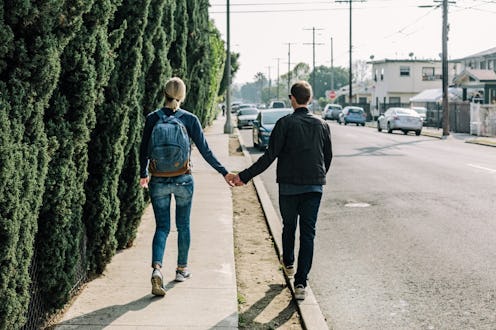
Over the past few years, feminist activists have made great strides highlighting the importance of enthusiastic engagement as a pre-qualifier for sex. As we shift from a "no means no" culture to a "yes means yes" culture, the definition of consent remains murky. According to a recent survey by Planned Parenthood, folks don't quite agree on what is acceptable and what is not when it comes to hooking up — and particularly when alcohol is involved.
The good news is that 92 percent of people surveyed believe that if someone is incapacitated or passed out, sexual activity is a no-go and any sexual interaction with that person constitutes sexual assault. However, it gets more complex when we're talking about two somewhat sober seeming individuals trying to hit it. Between 19-37 percent of respondents said they strongly agree that taking off their own clothes, getting a condom, nodding in agreement, engaging in foreplay or not saying ‘no’ indicates consent for sexual activity to proceed.
Unsurprisingly, women are more adept than men when it comes to understanding consent. Only 64 percent of men strongly disagreed with the idea that one-time consent means consent for the future (yikes), and only 35 percent of men strongly disagreed that mixed signals mean consent.
These numbers may not be ideal, but it bodes well that the participants in the Planned Parenthood survey did believe everyone should be offered education on consent at a young age. Eighty-two percent said they think middle schoolers should be taught how to recognize whether your partner is giving consent, and 91 percent think they should be taught how to avoid sexually assaulting someone. This is more vital, in my humble opinion, than learning "how not to be sexually assaulted," which is part of a victim-blaming discourse that doesn't do women — or any gender identity for that matter — any favors. As activists and organizations keep educating the masses on how to respectfully engage in pleasure, enthusiastic consent culture will hopefully become part of mainstream culture for good.
Images: Unsplash; Giphy